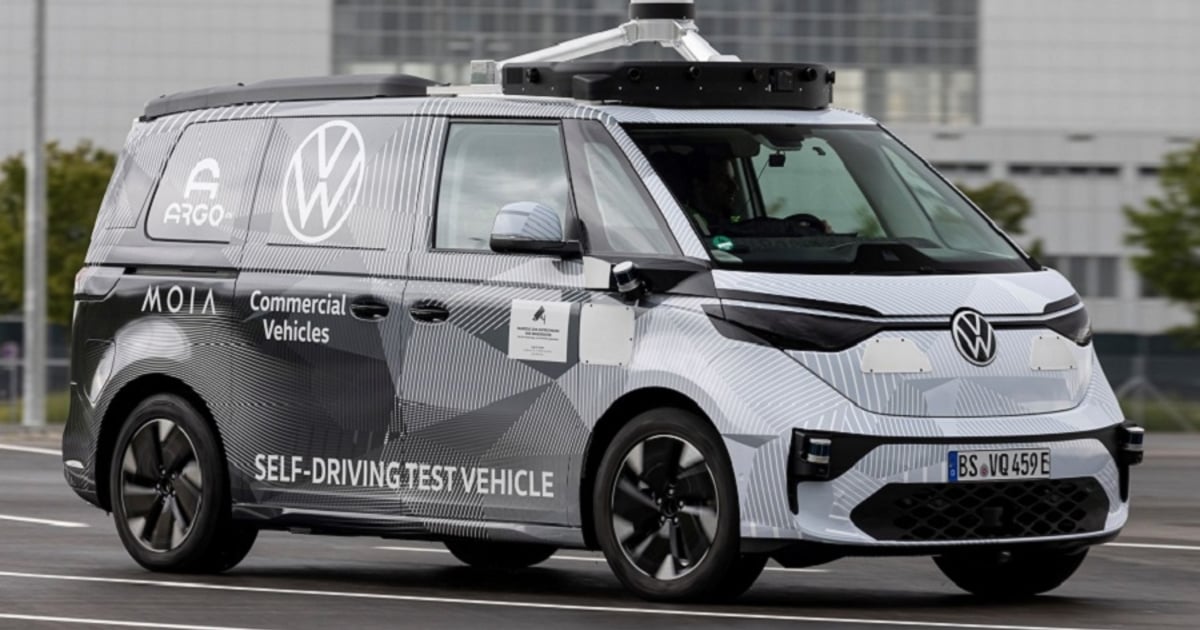
Volkswagen will begin limited testing of an autonomous ride-hailing program in a geofenced region of Austin, Texas, this month using up to 10 Euro-version ID Buzz minivans equipped with special equipment from Mobileye and, at least initially, human safety drivers.
VW will use the Level 4 test fleet, which it said will grow in subsequent years, to “collect data through driven miles across a diversity of driving scenarios,” the company said in a statement Thursday. VW said it expected to expand the test program to four other U.S. cities and plans to begin ride-hailing operations involving the general public by 2026. Until that time, the testing operations will be conducted within a closed user group.
The pilot project builds on work that VW Group did with former autonomous driving partner Argo AI, which had been extensively backed by VW along with Ford Motor Co. before its collapse last fall. But instead of using Argo’s system, it uses a scalable autonomous driving tech stack from Mobileye, said Christian Senger, a member of the board of management of VW Commercial Vehicles in charge of development of autonomous driving.
“From Argo, we are [in the process of] taking over nearly 100 individuals, and they bring all the operations competencies in the team. They had their own fleet control app and booking platform; this is also coming to us, and a lot of knowledge about safety conditions on U.S. ground and so on, as well as the hub in Austin, which we took over,” Senger explained. “We are really stepping in the [footsteps] of Argo, but with a total different tech setup and a little differentiated business approach.”
In Austin, the company will initially use short-wheelbase versions of the ID Buzz electric minivan imported from Europe for the testing program. They will be equipped with the Mobileye technology stack. Later, the company plans to transition to similarly equipped long-wheelbase versions of the ID Buzz, like those that will go on sale next year in North America.
“The big aim is that we bring fully autonomous vehicles to the market as a commercial, scalable product,” Senger said. “We want to be partners of the cities. We want to improve mobility in cities, road safety, and we want to be a real alternative to a private car.”
VW has been running experiments with ride-hailing and autonomous versions of those services in its native Germany for several years. But Katrin Lohmann, president of VW ADMT — which stands for Autonomous Driving Mobility and Transport, under VW Commercial Vehicles — said U.S. cities present a higher potential for the underlying business case than do operations in Europe, where VW has been experimenting through its Moia subsidiary.
“The U.S. is already more mature in terms of ride-hailing,” Lohmann said. “Cities [in the U.S.] are growing and growing, and therefore we think that the overall market potential in the U.S. will be bigger than the market potential in” Europe.

